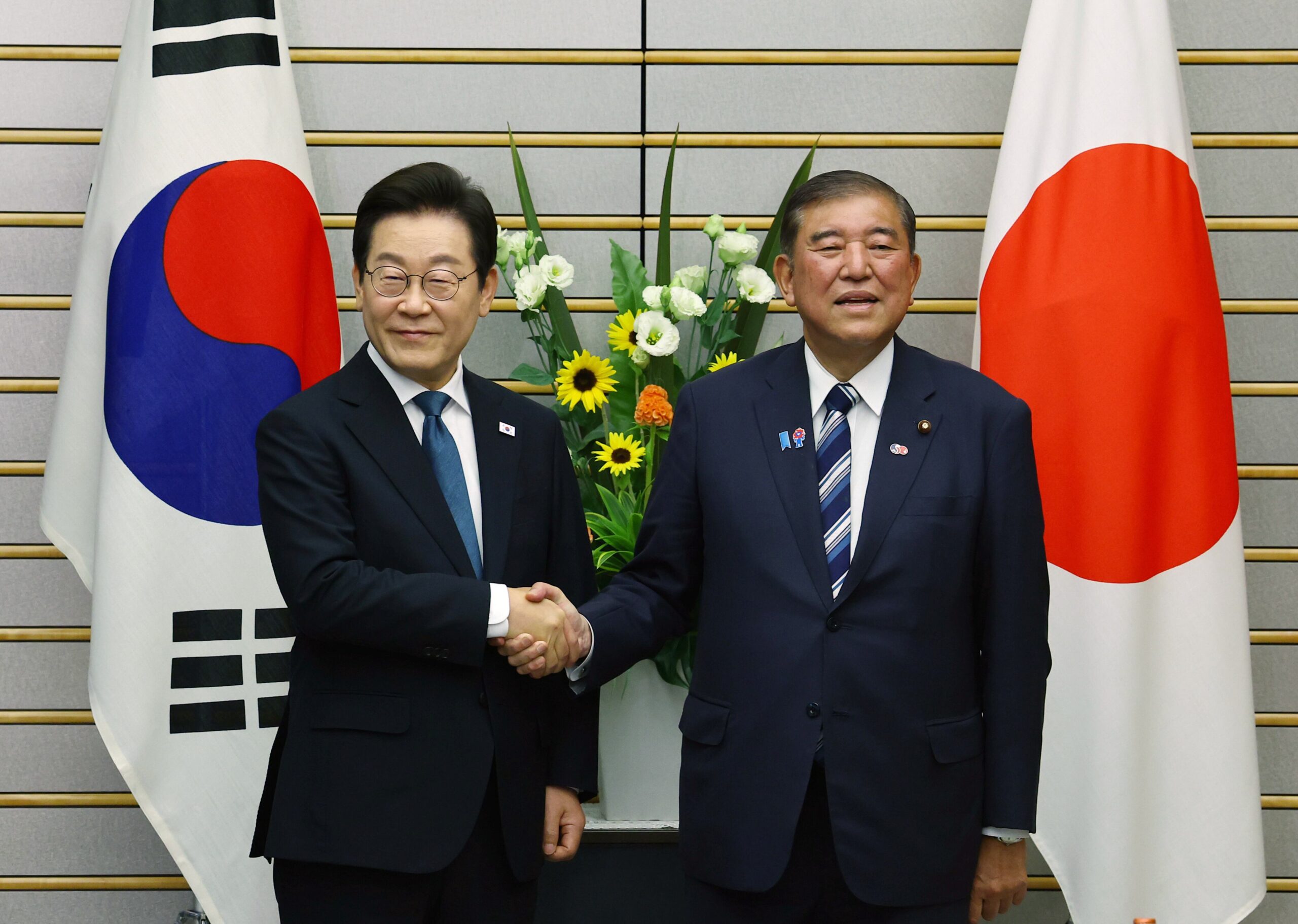TokyoIn his first meeting with Japanese Prime Minister Shigeru Ishibaon on Saturday, South Korean President Lee Jae Myung emphasized the need to put aside their historical disagreements as they confront shared threats from their partner, the United States.
The two decided to work together on issues including disaster avoidance, low birth rates, artificial intelligence, sustainable energy, and the elderly population. They reiterated that Japan and South Korea would cooperate with the US to put a stop to North Korea’s nuclear and missile development projects.
Suggested Videos
Lee’s trip to Japan might help him get ready for his important first meeting with U.S. President Donald Trump in Washington on August 25, which will mostly focus on defense and trade matters.
After two summit sessions, Lee told a joint press conference, “I came to Japan today with a conviction to boldly break away from past practices, pursuing pragmatic diplomacy centered on national interest and opening a path toward future-oriented, mutually beneficial cooperation between the countries.”
Prior to the US, the only new South Korean leader to travel to Japan
Lee, who met Ishiba during the June Group of Seven meeting, claimed to be the first South Korean president to select Japan as the first location for a bilateral summit after assuming office since the normalization of bilateral relations in 1965.
Japanese officials interpret it as evidence that Lee values the two neighbors’ relationship, which has been hampered by historical issues that have regularly strained their trilateral coordination with Washington.
Ishiba stated that cooperation between the two nations is more crucial than ever. I feel encouraged because the president and I have held this opinion since his inauguration.
Lee’s visit might also help Ishiba, who is under pressure from right-wing rivals in his ruling party to step down after the party’s defeat in the July election.
As the two countries commemorate the 60th anniversary of restoring their diplomatic relations this year, the goal of Saturday’s summit was to emphasize their strong bonds.
Trump and regional issues
The Asia Group’s Japan branch partner Rintaro Nishimura stated that Lee’s visit was timed to demonstrate his “pragmatic diplomacy, with a focus both on bilateral and trilateral relations with the U.S.”
Tariffs play a significant role, but I also believe Lee made this gesture to demonstrate how vital he views Japan as a partner in his foreign policy.
Ishiba has reached a tariff agreement ahead of South Korea. He saw Trump in Washington in February and spoke with him at the June G7 conference.
“Unwavering cooperation between South Korea and Japan, as well as between South Korea and the United States and Japan, is more important than ever in the face of a rapidly changing international situation,” Lee added.
“A virtuous cycle in which their improved relations enhance their trilateral cooperation with the U.S.” is what Lee stated they had decided to pursue.
According to Ishiba, they decided to intensify strategic discussions about economic security and defense.
Japan’s history of conflict
Days prior to the conference, the two leaders indicated that they would take a conciliation stance toward one another.
Lee called for the two sides to put aside grievances stemming from Japan’s brutal rule and forge forward-looking ties in his speech last week commemorating the Korean Peninsula’s liberation from Japan’s 1910–1945 colonization. He also urged Tokyo to confront unresolved issues and work to uphold trust.
Furthermore, although many Koreans still have resentment, Lee stated in an interview with Japan’s conservative Yomiuri newspaper on Thursday that he will uphold previous agreements with Japan regarding the forced labor difficulties and sexual assaults of the so-called comfort women.
Ishiba, who has expressed sympathy for Asian victims and admitted Japan’s wartime aggression, apologized for the war, calling it a mistake. He did this in a Japanese leader’s surrender anniversary speech on August 15 for the first time since former Prime Minister Shinzo Abe removed the phrase in 2013.
___
This article was written by Kim Tong-hyung of the Associated Press in Seoul, South Korea.








